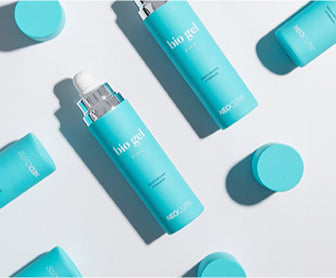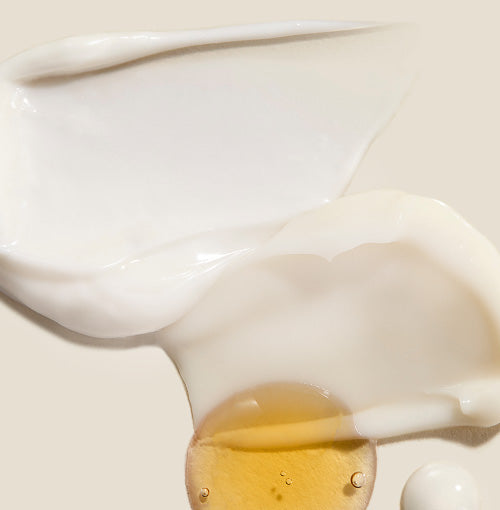Vitamin C: This Simple Ingredient can Make all the Difference in Skincare
Our skin typically contains high concentrations of vitamin C—this simple nutrient protects, heals, moisturizes, and nourishes us and our skin in a multitude of beneficial ways. Mention most any skincare concern, and there’s a good chance the recommended treatment will include vitamin C, making it one of the most sought-after and in-demand ingredients in skincare today.
The reason why? It works.
Many experts also believe vitamin C is KEY in an effective skincare routine (and there is research supporting these claims) so let’s dive right in and learn about this miracle nutrient.
What is Vitamin C?
We’ll begin by covering basic details about vitamins and vitamin C, also called L-ascorbic acid, so that we can better understand how this vital nutrient benefits our skin.
What are vitamins?
Vitamins are a group of nutrients our body needs for optimum health. There are 13 essential vitamins—some water-soluble, others fat-soluble—that assist with cell function, development, and growth.
- The water-soluble vitamins travel freely throughout the body and are flushed out through the kidneys. The body needs water-soluble vitamins in frequent small doses (the body does not store these nutrients). The water-soluble vitamins are the B family, pantothenic acid, biotin, folic acid, and vitamin C.
- Fat-soluble vitamins are stored in your body’s cells and are not as quickly expelled. We need these vitamins, but not as frequently as those listed above; they are vital for our health. Vitamin A, beta carotene, D, K, and E are in this group.
What are the attributes of Vitamin C?
Vitamin C is a water-soluble vitamin that helps explicitly support our immune system, aids in iron absorption, and is needed to metabolize protein absorption, and is a powerful antioxidant. It also works to heal, repair, and restore our body tissues.
How Vitamin C Works for the Skin
The benefits of vitamin C for healthy skin are tremendous and are nothing short of miraculous. The list is extensive, so let’s get started:
- As an antioxidant, vitamin C assists the cells in your skin to neutralize free radical damage caused by UV light and pollutants, protecting your skin from further degeneration. Another effect of its antioxidant power is its anti-inflammatory properties, which reduce redness and puffiness.
- The normal aging process results in sagging skin due to the loss of collagen and elastin; Vitamin C may assist in the production of collagen and elastin, resulting in an overall tightening effect for your face and décolletage.
- Vitamin C impedes melanin production and helps to stop dark spot formation, and evens out skin tone, and fades existing dark spots.
- It brightens and lightens dull and tired-looking complexions.
- The collagen-building effect of Vitamin C is necessary for repairing, rebuilding, and healing the skin. People with low levels of this gold-standard supplement experience slower healing times.
The Best Vitamin C for Our Skin
The best vitamin C for our skin is L-ascorbic acid, the natural form found in natural sources. However, there are synthetic forms that are just as effective. Here’s the skinny on L-ascorbic acid versus synthetic:
- Natural vitamin C is expensive and vulnerable to heat. Products with L-ascorbic cannot be heated without damage and should be stored in opaque or amber-colored, airtight bottles.
- Synthetic versions of vitamin C are less costly, have a longer shelf-life, and are less sensitive to temperature and heat.
There’s a personal preference choice here; you’ll need to weigh out which version of vitamin C is the best for your skin. Here are a few things to keep in mind:
- To experience the best results possible from vitamin C, whether natural or synthetic, make sure you purchase quality skincare products. Products formulated with the right proportions of active ingredients that have been vetted by professionals ensure your skin gets the very best and effective treatments available.
- Vitamin C in products comes in differing concentrations; if you are trying a vitamin C serum on your skin for the first time, consider starting with a lower concentration (10%) and working your way up to higher concentrations (15%-20%) to give your skin time to adjust.
Make a Difference with Vitamin C for Skincare
Vitamin C serums, creams, and lotions that are formulated carefully for absorption and effectiveness can be your skin’s new best friend. Why not take advantage of this miracle nutrient’s healing, restorative, and nurturing powers?
Buy the Best Vitamin C Skincare Treatments ➜
Sources:







Leave a comment